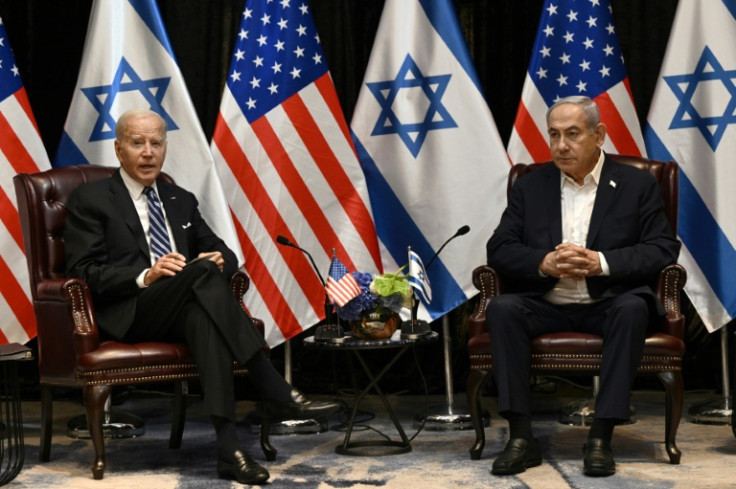US Not To Engage In Retaliatory Strike Against Iran: Biden tells Netanyahu

President Joe Biden has conveyed to Israeli Prime Minister Benjamin Netanyahu that the United States will not join in any Israeli counter-offensive against Iran.
During a conversation with Netanyahu late on Saturday, Biden indicated that further retaliation was unnecessary. Additionally, senior U.S. officials conveyed to their counterparts that the United States would refrain from participating in any offensive response against Iran, as reported by CNN.
In his phone call with the Israeli prime minister, Biden reportedly suggested that Netanyahu should view Saturday as a victory. The attacks from Iran were largely ineffective and highlighted Israel's superior military capabilities, according to a senior administration official. Biden also implied that there was no need for further Israeli retaliation.
In a statement following his conversation with Netanyahu, Biden remarked, "I told him that Israel demonstrated a remarkable capacity to defend against and defeat even unprecedented attacks — sending a clear message to its foes that they cannot effectively threaten the security of Israel." Whether Netanyahu heeds Biden's advice remains uncertain.
Meanwhile, John Kirby, the White House's top national security spokesperson, told ABC on Sunday that the United States will continue to help Israel defend itself, but does not want war with Iran.
Kirby reaffirmed the White House's commitment to safeguarding US troops and facilities in the region, stating that the president would take necessary measures to protect them. He emphasized that there is currently no imminent threat to US service members and facilities, highlighting the deployment of additional US forces to assist in defending Israel and shipping channels in the Red Sea since October 7. Kirby stressed the administration's vigilance regarding potential threats to US forces in the region but clarified that the US is not seeking to escalate tensions or engage in a wider conflict, including with Iran.
"The president has been very clear, publicly so: We don't seek a war with Iran," Kirby said. "We don't seek an escalated tensions in the region. We don't seek a wider conflict. And everything he's been doing, literally since the seventh of October, has been designed to that outcome."
According to another US official, Defense Secretary Lloyd Austin requested that his Israeli counterpart, Minister Yoav Gallant, inform the US in advance of any potential response to the Iranian attack.
On Saturday night, Iran launched hundreds of drones and missiles at Israel in retaliation for a suspected Israeli attack on Iran's consulate in Syria on April 1st.
Iran's attack occurred amid indications of a stalemate in negotiations between Hamas and Israel regarding the six-month conflict in Gaza. No Iranian leaders have spoken out to justify the attack, which marked the first time Iran has launched a direct military assault on Israeli territory.
© Copyright IBTimes 2025. All rights reserved.






















